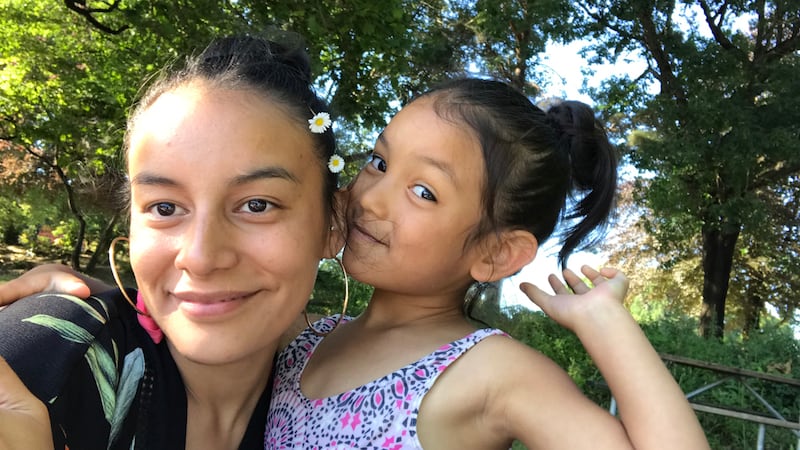WW presents "Distant Voices," a daily video interview for the era of social distancing. Our reporters are asking Portlanders what they're doing during quarantine.
Andrea Valderrama is grateful to live in multigenerational housing—and frightened for the people she lives with.
An analysis of census data in this week's WW cover story shows that the Portland neighborhoods hit hardest by COVID-19 are the same places where people live in extremely close quarters. Immigrants and refugees, who often reside in this part of the city, traditionally live with their entire families, but Portland offers few affordable alternatives that could accommodate them.
That's the case for Valderrama, 31, who lives with her 5-year-old daughter, her mom and her mom's husband in a three-bedroom, one-bathroom house that she owns.
Valderrama, the advocacy director for the Coalition of Communities of Color, is part of a family that immigrated from Peru and chooses to live together. She says the benefits are tangible.
"I think in American Western culture, the separation from your parents is an achievement," Valderrama says. "In our culture, it's almost the exact opposite. There's a lot of benefits—even if the space is 900 square feet."
But the risks are real, too. Living close together leaves little room to avoid virus transmission.
After Valderrama was featured in this week's paper, she agreed to a follow-up interview with reporter Latisha Jensen. Valderrama discussed the atmosphere of worry that has descended over her household, why sending some family members to a motel doesn't seem like a feasible solution, and what policy changes Oregon could make to assist families like hers.
